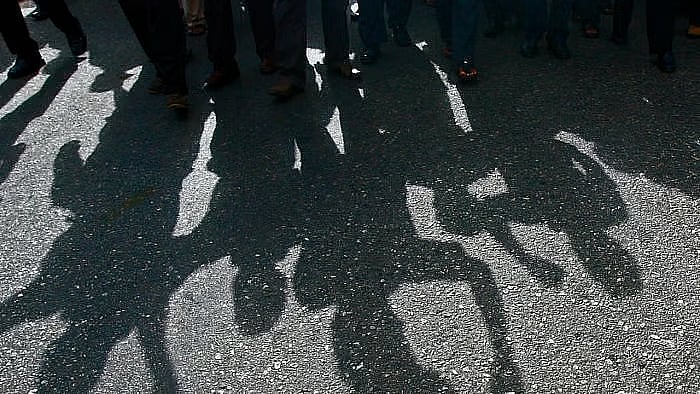
Image for representation showing a mob violence.
Credit: iStock Images
Dakshina Kannada, once the pride of Karnataka, stood tall as a model district, renowned for its entrepreneurial spirit and rich cultural heritage. This coastal district gave birth to leading banks like Canara Bank, Syndicate Bank, Karnataka Bank, and Vijaya Bank, which catapulted it to prominence.
It was and continues to be a beacon of quality education, healthcare, and hospitality. Its vibrant cultural landscape, marked by traditional art forms like Yakshagana and notable contributions to Indian cinema was a further testament to its progressive and harmonious nature.
Today, however, Dakshina Kannada, along with its neighbour Udupi, risks being defined not by its achievements but by a disturbing rise in communal disharmony.
Two recent incidents starkly illustrate this growing menace. The brutal lynching of Ashraf, a 35-year-old spectator at a cricket match near Mangaluru, sent shockwaves across the state. Subsequently, a police sub-inspector and two constables were suspended for failing to act on a distress call from an eyewitness, instead directing him to contact the control room.
Worse, they attempted a cover-up, declaring the lynching as an unnatural death. The fact that a life could have been saved had the policemen acted promptly is a grim reminder of the devastating consequence of such negligence.
Similarly, the murder of Suhas Shetty, a rowdy-sheeter was swiftly given a communal hue by certain organisations, despite police confirmation of his past involvement in crimes including a murder. This has only further inflamed tensions. Regardless of individual backgrounds or perceived provocations, vigilante justice has no place in a civilised society, and the rule of law should prevail.
These incidents and their aftermath are symptomatic of a deeper malaise – deliberate polarisation. Political actors, cutting across communities, continue to fan communal flames for narrow gains.
This must stop. The government must enforce law and order with an iron hand and send a clear message that mob justice and hate-fuelled violence will not be tolerated.
But the biggest responsibility lies with the people. The citizens of Dakshina Kannada and Udupi should choose unity and protect their shared heritage from divisive forces.
This is not a time for passive observation but for active resistance. It is time to reclaim the narrative, amplify the voices of reason, and resolutely reject those who profit from discord. The future of these districts rests on the courage of its people to choose progress over paranoia.
By standing together against hate and intolerance, the people can restore the districts to their former glory and ensure a brighter tomorrow for the generations to come.
